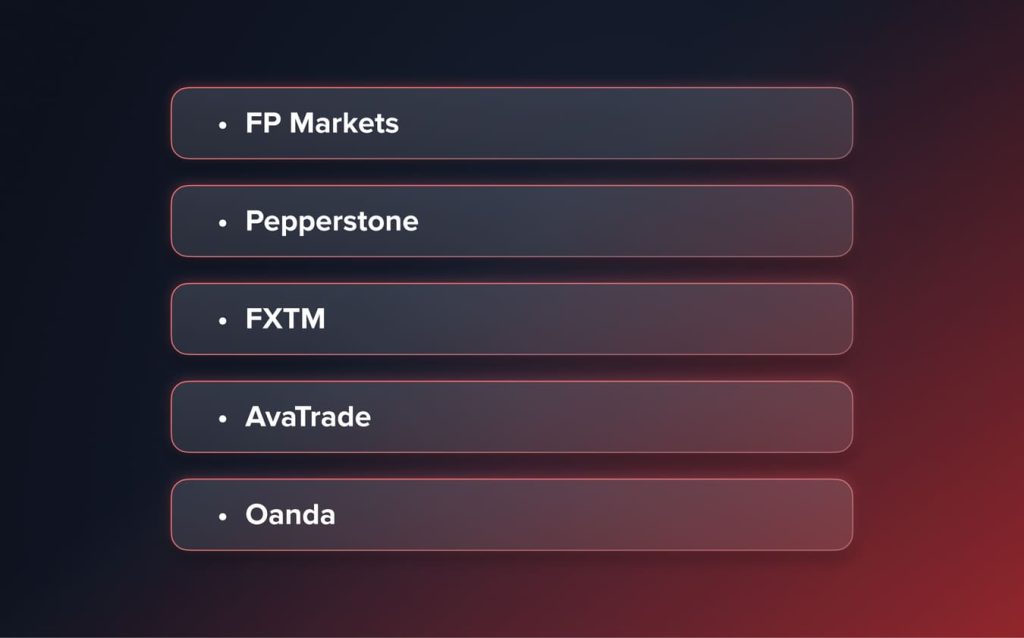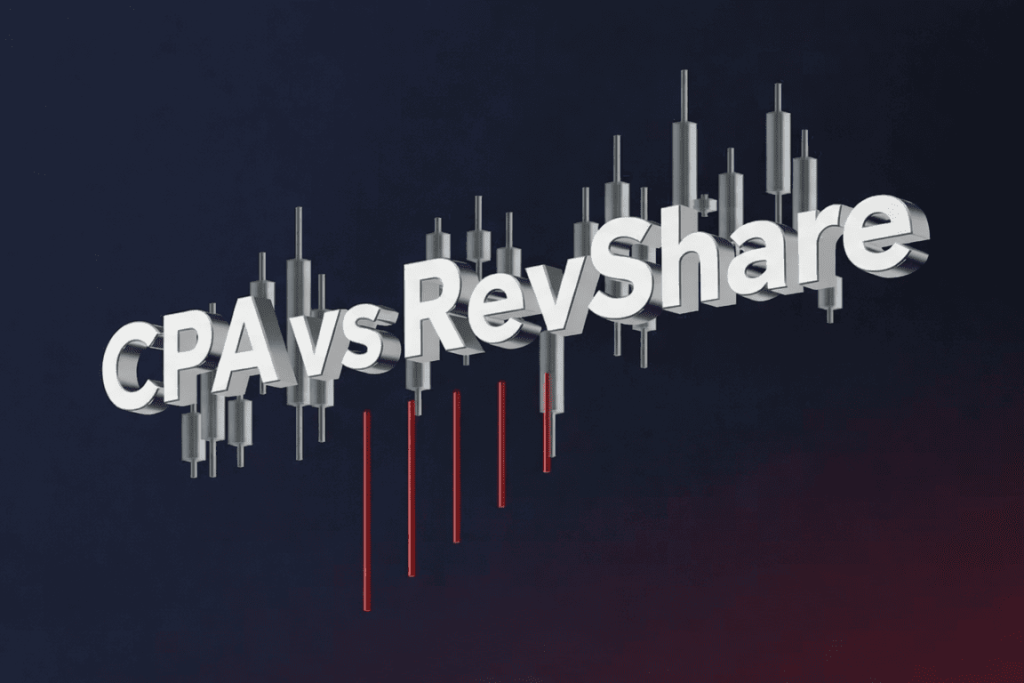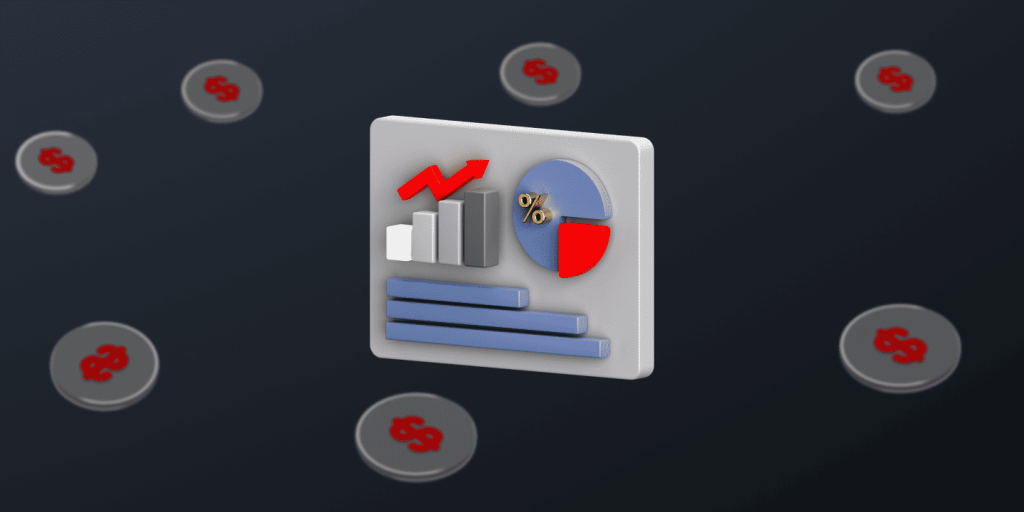
¿Qué es una cuenta de trading islámica? Guía completa para traders
Contenidos
¿Cuál es la forma islámica de comercio?
En el Islam, todas las actividades deben adherirse a la ley sharia. Algunos principios fundamentales rigen las finanzas islámicas y determinan si las actividades y contratos financieros son lícitos (halal) o prohibidos (haram) según la ley sharia. Los principios más relevantes para el comercio de divisas son:
1. Prohibición de la usura
La riba se refiere a cualquier compensación excesiva sin la debida contraprestación. Se traduce comúnmente como "usura" o interés cobrado sobre préstamos. El Islam considera el dinero como un medio de intercambio, no como una mercancía que genera ganancias. Cobrar intereses se considera una forma de obtener ganancias sin asumir ningún riesgo comercial.
2. Centrarse en las transacciones respaldadas por activos
Todos los contratos deben estar respaldados por actividades económicas reales que involucren bienes y servicios. No se tolera la especulación ni los contratos basados únicamente en el intercambio de dinero. Las transacciones financieras deben dar lugar a la creación de activos, bienes o servicios.
3. Participación en ganancias y pérdidas
Las actividades de inversión, como las sociedades comerciales, están permitidas por la ley islámica siempre que todas las partes acuerden voluntariamente compartir los riesgos y las recompensas. Se prohíben las rentabilidades fijas o garantizadas, ya que implican el cobro de intereses.
4. Evitar Gharar
Un valor fundamental de las finanzas islámicas es evitar el gharar, que describe la ambigüedad, la incertidumbre o el riesgo excesivo que podría dar lugar a resultados injustos o disputas. Las transacciones deben tener términos claramente definidos para que todos los participantes comprendan las condiciones y los resultados potenciales.
Estos principios rectores configuran las finanzas islámicas y requieren estructuras alternativas a los modelos convencionales basados en intereses. Elementos fundamentales como la prohibición de intereses excesivos dificultan los enfoques comerciales estándar. Las alternativas islámicas buscan cumplir con estas normas.
You may also like

Explicando la prohibición de la riba
El Islam prohíbe el pago o cobro de intereses, conocidos como riba, por varias razones. En primer lugar, reconoce el dinero únicamente como un medio de intercambio y no como una mercancía que pueda generar ganancias por sí misma sin ser utilizada productivamente en actividades económicas reales como el comercio.
Cobrar intereses equivale esencialmente a ganar dinero con dinero, algo que el Islam considera haram o prohibido. Crea una relación desigual en la que el prestamista obtiene beneficios sin asumir ningún riesgo comercial.
Además, el Islam busca promover prácticas éticas donde todas las partes de una transacción contribuyan con un trabajo significativo y compartan equitativamente los riesgos y las recompensas. El interés socava esto al garantizar la rentabilidad del capital inactivo, independientemente del resultado. También puede conducir a situaciones opresivas donde se explota a los necesitados.
Concepto de participación en las ganancias y pérdidas
Para cumplir con estos principios, el Islam fomenta modelos de reparto de riesgos y beneficios, como la mudharabah (sociedad sin voto) y la musharakah (sociedad activa), como alternativas a los préstamos con intereses. Los socios aportan capital y trabajan para un objetivo empresarial común, dividiendo equitativamente las ganancias según su contribución.
Las pérdidas también se reparten proporcionalmente a la parte que le corresponde a cada socio, en lugar de que una sola parte las asuma, como en los contratos de deuda. Esto fomenta un entorno equitativo y un interés mutuo entre todos los involucrados en las transacciones financieras.
Este reparto de ganancias y pérdidas (PLS) es fundamental en las transacciones permitidas por el islam. Siempre que todos los términos estén claramente definidos desde el principio, cumple con las normas de cooperación mutua y desmiente los argumentos de rendimientos predeterminados que equivalen a cargos por intereses.
¿Cuál es la diferencia entre una cuenta islámica y una cuenta estándar?
Cuentas Forex estándar
En una cuenta estándar de trading de forex, los operadores están sujetos a comisiones financieras, llamadas swaps o rollovers, cada vez que mantienen una posición durante la noche. Esto refleja el diferencial de tipos de interés entre las dos divisas de la operación.
Por ejemplo, si alguien opera en largo en el par EUR/USD, está tomando prestados euros y prestando dólares. A un día, recibe intereses sobre los euros según el tipo de interés del Banco Central Europeo, pero debe pagar intereses sobre los dólares según el tipo de interés de la Reserva Federal.
El interés neto pagado o recibido corresponde al importe diario del swap registrado en la cuenta del operador. Si el euro tiene un tipo de cambio más alto que el dólar, la operación EUR/USD generaría un swap positivo. Los operadores se benefician del crédito financiero.
Los corredores de forex aplican swaps una vez al día en horarios de rollover predeterminados, generalmente entre las 17:00 y las 18:00 EST. El importe depende del tamaño de la posición y del diferencial de tipos de interés. Este ajuste de intereses afecta tanto a las ganancias como a las pérdidas.
Las cuentas islámicas eliminan los swaps
Dado que los swaps de divisas se basan en los tipos de interés subyacentes que cobran los bancos centrales, introducen un elemento de usura en las operaciones y violan los principios islámicos. Mantener posiciones en divisas abiertas durante la noche para recibir o pagar swaps se vuelve inadmisible.
Esto hace que las cuentas de forex estándar no cumplan con la sharia y convierte las actividades comerciales realizadas a través de ellas en haram o prohibidas desde una perspectiva religiosa. Fue este problema el que impulsó la introducción de las cuentas de trading islámicas.
Para resolver la prohibición de la usura, las cuentas de trading islámicas funcionan sin ningún componente de interés. Los brókeres ofrecen modelos de cuentas sin swaps que no cobran ni abonan swaps diarios a las operaciones.
En lugar de financiación variable, se utilizan algunas alternativas que cumplen con la ley Sharia como:
- Aplicar una pequeña comisión fija en cada operación en lugar de swaps flotantes vinculados a las tasas
- Ampliación de los diferenciales de divisas para compensar la pérdida de ingresos por swaps
- Imponer límites antes de las comisiones en lugar de cargos continuos
- Cobro de tarifas por inactividad si no se realizan transacciones en un plazo de 30 a 60 días
Esto elimina la riba y hace que las operaciones comerciales sean halal o permisibles para los musulmanes que se adhieren a las pautas bancarias de su fe.
Impacto en los diferentes tipos de comerciantes
La eliminación de los swaps beneficia principalmente a los operadores de posición, cuyas perspectivas se miden en semanas en lugar de días. Evitan las considerables comisiones de financiación que se acumulan al operar en continuo. Sin embargo, los diferenciales de divisas más amplios frenan a los scalpers que se benefician de pequeños movimientos intradía. Los altos costes de transacción merman la viabilidad.
Los operadores de swing que se encuentran entre estos extremos se ven moderadamente afectados. No pagan swaps extendidos ni se enfrentan a tasas intermedias excesivamente ajustadas. En general, las cuentas islámicas se adaptan a diferentes estilos, pero generalmente son más adecuadas para los operadores de posición que las cuentas estándar. Los spreads requieren operaciones algo mayores.
Limitaciones de algunas divisas/mercados
Los corredores también pueden limitar los pares de mercados emergentes menos líquidos en las cuentas islámicas debido a sus tasas de interés internas, generalmente más altas. Esto evita la acumulación de swaps negativos que no pueden compensarse sin introducir componentes de interés inadmisibles.
El comercio de criptoactivos se enfrenta a problemas de interpretación bajo la sharia, ya que, según las directivas islámicas, se asemejan más a las materias primas que a las monedas. Las acciones requieren la verificación de las actividades comerciales halal de cada empresa.
Si bien diversos mercados siguen siendo accesibles y están sujetos a la intervención de los corredores, algunos activos presentan dificultades intrínsecas de cumplimiento que los titulares de cuentas islámicas deben considerar. Los pares de divisas principales presentan los menores desafíos de interpretación.
¿Cómo abro una cuenta de trading islámica?
Cómo seleccionar un corredor de bolsa de buena reputación
Elegir el bróker de forex adecuado es crucial al abrir una cuenta islámica. Los factores clave a considerar incluyen la regulación, el apalancamiento ofrecido, los tipos de cuenta y si se admite un modelo sin swaps.
Busque corredores con licencia de reguladores de primer nivel como la FCA, la CySEC y la ASIC, que imponen estrictos estándares operativos. Una supervisión fiable garantiza una adecuada segregación de los fondos de los clientes y recursos en caso de disputas.
You may also like

La disponibilidad de apalancamiento, que varía entre 50:1 y 500:1, permite a los operadores aumentar sus ganancias, pero aumenta considerablemente el riesgo. Considere cuidadosamente su experiencia personal, sus objetivos y las normas de apalancamiento del bróker.
Verifique que las plataformas utilizadas, el depósito mínimo requerido y las comisiones de las cuentas islámicas se ajusten a sus necesidades en comparación con las cuentas regulares. La calidad de la atención al cliente también varía entre brókers.
Proceso de registro de cuenta
Una vez que encuentre un corredor adecuado, abra una cuenta en su sitio web, especialmente para modelos islámicas. Proporcione documentos de identidad, comprobante de domicilio y otros datos de verificación de "Conozca a su cliente" (KYC).
Complete todos los formularios de solicitud de forma precisa y completa. Declare experiencia relevante en trading, además de conocimientos financieros, objetivos y honestidad en su tolerancia al riesgo. Confirme que la información proporcionada en su registro coincida con la que presentó. Deposite fondos en la nueva cuenta dentro de los límites establecidos por su corredor una vez finalizado el registro, a la espera de sus comprobaciones de seguridad.
Descarga y configuración de la plataforma
MT4 y MT5 Siguen siendo las plataformas de referencia para forex, también disponibles para cuentas islámicas. Descargue la versión correspondiente para su bróker y active los complementos adicionales necesarios. Tómese su tiempo para personalizar el diseño de sus gráficos, la configuración de indicadores y los parámetros predeterminados del tipo de orden según los activos que desee operar. Active las confirmaciones de operaciones y retiros.
Active el modo demo o el modo de trading en vivo según sea necesario. Se recomienda a los nuevos usuarios practicar sin riesgos con cuentas demo antes de invertir capital real.
Recursos educativos de Brokers Supply
El uso de tutoriales, seminarios web, libros electrónicos y videos sobre los conceptos básicos del trading y los conceptos avanzados ayuda a sentar las bases para navegar por la mecánica del mercado y perfeccionar estrategias desde una posición informada.
Los temas pueden cubrir análisis fundamental, gráficos técnicos, gestión de riesgos Psicología y más. Los videos de demostración práctica de la plataforma también son útiles al configurar el perfil de tu cuenta.
Consulte con los corredores sobre las particularidades de las finanzas islámicas aplicables a sus operaciones y continúe aprendiendo regularmente para evitar errores a medida que aumenta su experiencia. Las entidades bien reguladas suelen ofrecer apoyo educativo de calidad.
Los mejores brókers con cuenta de trading islámica

Mercados FP
Regulado por las principales ASIC y FSCA, FP Markets ofrece ejecución ECN con un apalancamiento de hasta 1:500. Las cuentas comienzan desde tan solo $100, y las versiones islámicas estándar aplican una comisión fija de $2 en todos los pares. MT4, MT5 y cTrader impulsan a los operadores. Sólidas herramientas de investigación y centros de datos globales garantizan operaciones fiables y sin comisiones en forex, índices, materias primas y criptomonedas para clientes de todo el mundo.
Piedra de pimienta
La doble regulación de ASIC y FSCA garantiza prácticas prudentes. MT4, MT5, cTrader y su propia plataforma ofrecen un flujo de trabajo versátil. Las cuentas islámicas estándar sin comisiones tienen un mínimo de $5. La protección contra saldo negativo y un apalancamiento de hasta 1:500 mejoran la seguridad. El soporte multilingüe por teléfono y chat en vivo asiste con experiencia a los operadores musulmanes de todo el mundo.
FXTM
FXTM, una de las opciones más completas, permite a los operadores activar el modo sin swap en cualquier cuenta, excepto MetaTrader 5. Ofrece spreads competitivos desde 0,1 pips en los pares principales y plataformas online de calidad como MT4 y su propia app. Con la regulación de los principales organismos de control europeos, como la CySEC y la FCA, FXTM ofrece un entorno de trading seguro.
AvaTrade
Supervisión principal de la CySEC con regulación adicional en las principales jurisdicciones. Opciones de spread fijo o variable que se adaptan a diversas necesidades. Los tipos de cuenta se convierten fácilmente a versiones islámicas, eliminando los swaps. Los programas de aprendizaje integrales de AvaAcademy ayudan a navegar por diversos mercados con comisiones reducidas desde una sola cuenta.
Oanda
Proveedor pionero regulado por autoridades de prestigio, como la FCA del Reino Unido. MT4, junto con su plataforma, empodera a los usuarios. Las cuentas Edge cobran una comisión fija de $2. Aprovechar Se extiende hasta 500:1 en forex, metales preciosos, energías e índices. Seminarios web continuos y recursos para socios para todos los niveles.
Juntos, estos corredores logran un equilibrio adecuado entre costos competitivos, una supervisión sólida y una funcionalidad versátil que satisface las necesidades de los musulmanes para operar legalmente a nivel mundial. Los usuarios pueden gestionar el riesgo con confianza a medida que progresan en sus habilidades.
Conclusión
En conclusión, las cuentas de trading islámicas han permitido a los musulmanes participar activamente en los mercados financieros globales de acuerdo con los principios de la sharia mediante modelos operativos alternativos que eliminan los problemáticos cargos por intereses. Con una cuidadosa selección de corredores y una gestión adecuada del riesgo, los operadores de todas las confesiones pueden beneficiarse.
FAQ
Sí, las cuentas islámicas están abiertas a todos los inversores a nivel mundial, independientemente de su fe. Los corredores no exigen comprobante de religión.
Sujeto a las normas de los corredores, las divisas principales como el EUR/USD y materias primas como el oro suelen estar permitidas. Las acciones requieren una revisión exhaustiva para garantizar operaciones verdaderamente halal.
El tratamiento fiscal de las ganancias derivadas del trading de divisas varía según la región. Consulte con un asesor fiscal sobre sus obligaciones fiscales personales.
Actualizado:
19 de diciembre de 2024



